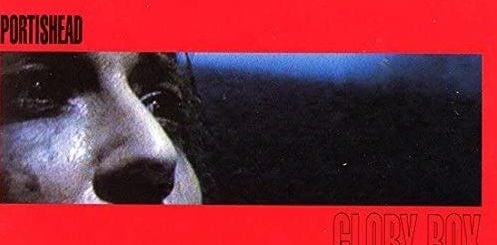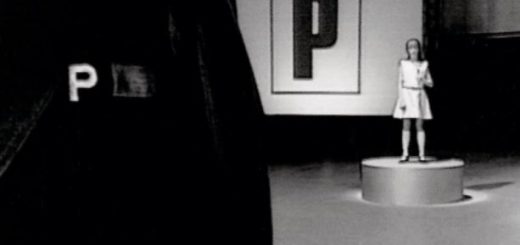Hunter by Portishead Lyrics Meaning – Delving Into the Depths of Vulnerability and the Desire for Connection
Lyrics
We’d ever known each other
And new evidence is what we require
In this world
I stand on the edge of a broken sky
And I will come down, don’t know why
And if I should fall, would you hold me?
Would you pass me by?
For you know I’d ask you for nothing
Just to wait for a while
So confused
My thoughts are takin’ over
Unwanted, arising space me instead
Won’t let go
I stand on the edge of a broken sky
And I will come down, don’t know why
And if I should fall, would you hold me?
Would you pass me by?
For you know I’d ask you for nothing
Just to wait for a while
Deep within the haunting and ethereal soundscape crafted by Portishead’s ‘Hunter,’ lies a poetic exploration of vulnerability, isolation, and the desire for an anchor amidst the chaos. The track, culled from the band’s 2008 album ‘Third,’ treads a delicate line between the mysterious and the intimately familiar, ushering listeners into a layered narrative that is as confounding as it is revealing.
Recent years have seen a resurgence in the analysis of lyrics that delve into the human condition, with fans and critics alike poring over the words of songs as if they were literary texts. ‘Hunter’ is precisely the kind of song that demands this kind of scrutiny. It’s a mosaic of emotions and images that, when pieced together, presents something that resonates on a universal frequency.
Eavesdropping on the Soul: A Journey into ‘Hunter’s’ Core
At first brush, ‘Hunter’ resembles an enigmatic puzzle, each lyric a cryptic piece waiting to be aligned. The song’s opening lines conjure a sense of estrangement, suggesting two entities bound by an unspoken past, teetering on the precipice of acknowledgment. The quest for ‘new evidence’ is not just a yearning for proof or justification but a deeper call for recognition in the vast expanse of ‘this world.’
The song’s layered composition, with its brooding bass and ghostly vocals, complements the lyrical journey. It underlines a profound solitude, one that embraces the shadow of uncertainty. ‘Hunter’ articulates a narrative that’s simultaneously a plea for patience and a braving of one’s own existential precipice, mirrored in the literal imagery of a ‘broken sky’.
The Gravity of the Fall: Understanding the Metaphors
Throughout ‘Hunter,’ the metaphor of standing on the edge of a ‘broken sky’ recurs, symbolizing a point of no return. The sky, typically a representation of freedom and limitlessness, becomes fractured—a representation of the protagonist’s fragmented reality. The decision to ‘come down’ and the uncertainty of why speaks to the involuntary nature of vulnerability.
The fall represents a surrender to circumstances, an acceptance of one’s own fragility. It is a pivotal moment of introspection and the recognition of one’s limitations. The singer’s unknown motives for descent suggest a subconscious confrontation with the self, and the willingness to face the repercussions of that descent.
A Solitary Cry in the Crowd: Pleading for Presence
The poignant inquiry, ‘And if I should fall, would you hold me? Would you pass me by?’ illuminates the core of human need—the longing for connection and the fear of abandonment. It’s a stark revelation of the existential dread that comes with the act of falling, metaphorically or otherwise, and the simple yet profound need to know someone is there.
Portishead’s lead singer, Beth Gibbons, delivers the lines with a haunting candor that submerges the listener into the raw emotion of the moment. This moment of lyrical vulnerability strikes a chord that is at once intimate and anthemic, resonating with anyone who has ever felt the solitary weight of their emotions.
The Chorus’s Cry: Memorable Lines that Echo the Human Psyche
The recurring chorus of ‘Hunter’ forms the emotional pillar of the song. Gibbons’ repeated pleas for her subject to ‘just wait for a while’ are delivered with a fragile resolve. This refrain becomes a mantra for the ravages of time—the acknowledgment that the troubles that plague the mind are often only assuaged through patience and the passage of time.
There is an elegance in the simplicity of this request, underpinned by the complex undertow of the song’s broader narrative. It is a testament to the band’s ability to distill profound longing into a succinct and memorable hook, one that insists on lingering in the consciousness long after the song concludes.
The Hidden Meaning: Unlocking ‘Hunter’s’ Labyrinth
To peel back the layers of ‘Hunter’ is to encounter a commentary on the human experience that eschews the obvious for the brilliantly abstruse. The ‘unwanted, arising space’ conveys an emotional landscape suffused with the inevitability of change and the struggle for self-possession in a reality that refuses to ‘let go.’
As the listener navigates the corridors of ‘Hunter’s’ meaning, they are likely to find themselves reflecting on the internal hunters within—those relentless pursuers of truth, comfort, and understanding amidst the disarray. In this light, ‘Hunter’ metamorphoses into an ode to the spirit that seeks to understand, even when ensnared by the complexity of its own existence.








